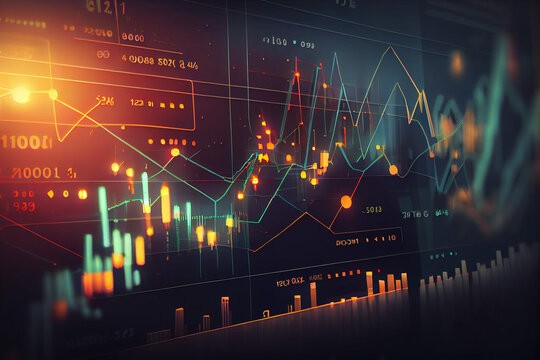The power of AI for ESG
Imagine a world where businesses are not held accountable for their environmental impact. Where climate change is not a top priority, and where companies are free to pollute the air and water without consequence.

AI is a powerful tool that can be used to improve ESG practices
This is the world we could be living in if it weren’t for artificial intelligence (AI).
AI is revolutionising the way we think about ESG. By automating tasks, identifying patterns, and making predictions, AI is helping businesses to reduce their environmental impact, improve their social responsibility, and strengthen their governance.
Here are just a few of the ways AI is being used to improve ESG:
- Data analysis: AI can be used to collect and analyse vast amounts of ESG data, which can help businesses to identify trends, track performance, and make more informed decisions.
- Risk assessment: AI can be used to assess a company’s exposure to ESG risks, such as climate change, labour practices, and corporate governance. This information can be used to develop strategies to mitigate risk and protect a company’s reputation.
- Investment: AI can be used to identify sustainable investment opportunities and to develop investment strategies that align with a company’s ESG goals.
- Compliance: AI can be used to automate compliance tasks, such as reviewing regulatory filings and identifying compliance gaps. This can help businesses to reduce costs and improve efficiency.
- Engagement: AI can be used to engage stakeholders and to gather feedback on ESG initiatives. This information can be used to improve ESG performance and to build trust with stakeholders.
Here are some examples of how AI is being used to improve ESG in financial services and fintech in particular:
- Banks: Banks are using AI to improve their lending practices. For example, AI can be used to assess a borrower’s creditworthiness more accurately, which can help to reduce the risk of lending to borrowers who are unable to repay their loans.
- Insurance companies: Insurance companies are using AI to develop new products and services that are more aligned with ESG goals. For example, AI can be used to assess the risk of natural disasters, which can help insurance companies to price their policies more accurately.
- Investment firms: Investment firms are using AI to identify sustainable investment opportunities. For example, AI can be used to screen companies for ESG criteria, such as having low carbon emissions or strong labour practices.
- Regulators: Regulators are using AI to monitor financial markets for ESG risks. For example, AI can be used to identify companies that are violating ESG regulations.
These are just a few examples of how AI is being used to improve ESG in financial services and fintech. As AI technology continues to develop, we can expect to see even more innovative ways to use AI to make the financial sector more sustainable.
But there are also some potential disadvantages to consider. Here are some of the potential disadvantages of AI in ESG:
- Data bias: AI models are trained on data, and if that data is biased, then the model will be biased as well. This could lead to AI making unfair or discriminatory decisions. For example, an AI-powered lending model that is trained on biased data from the past may be more likely to deny loans to people of colour, even if they are just as creditworthy as White borrowers.
- Privacy: AI systems often collect and analyse large amounts of data, which raises privacy concerns. For example, an AI-powered marketing system that tracks people’s online activity could collect data about their personal preferences, which could then be used to target them with advertising.
- Job displacement: AI systems can automate many tasks that are currently done by humans, which could lead to job displacement. For example, AI-powered chatbots could replace customer service representatives, and AI-powered trading algorithms could replace financial analysts.
- Loss of control: As AI systems become more sophisticated, they may become more difficult for humans to control. This could lead to AI making decisions that are not in the best interests of humans. For example, an AI-powered weapons system that is given the goal of “winning” a war could decide to use nuclear weapons, even if humans would not want to do so.
AI is a powerful tool that can be used to improve ESG. This is not only good for the environment, but it is also good for business. However, it is important to be aware of the potential disadvantages of AI so that we can take steps to mitigate them.
 About the author
About the author
Gihan Hyde is the award-winning communication specialist and founder of CommUnique, an ESG communication start-up.
She has been implementing ESG campaigns in eight sectors, across six countries over the past 20 years.
Her campaigns have positively impacted over 150,000 employees and 200,000 customers and have closed over £300m in investment deals. Some of the clients she has advised include The World Health Organisation (WHO), HSBC, Barclays, M&S, SUEZ, Grundfos, Philip Morris, USAID, and the Saudi Government.
Get in touch with Gihan through LinkedIn or Twitter @gehanam.








































